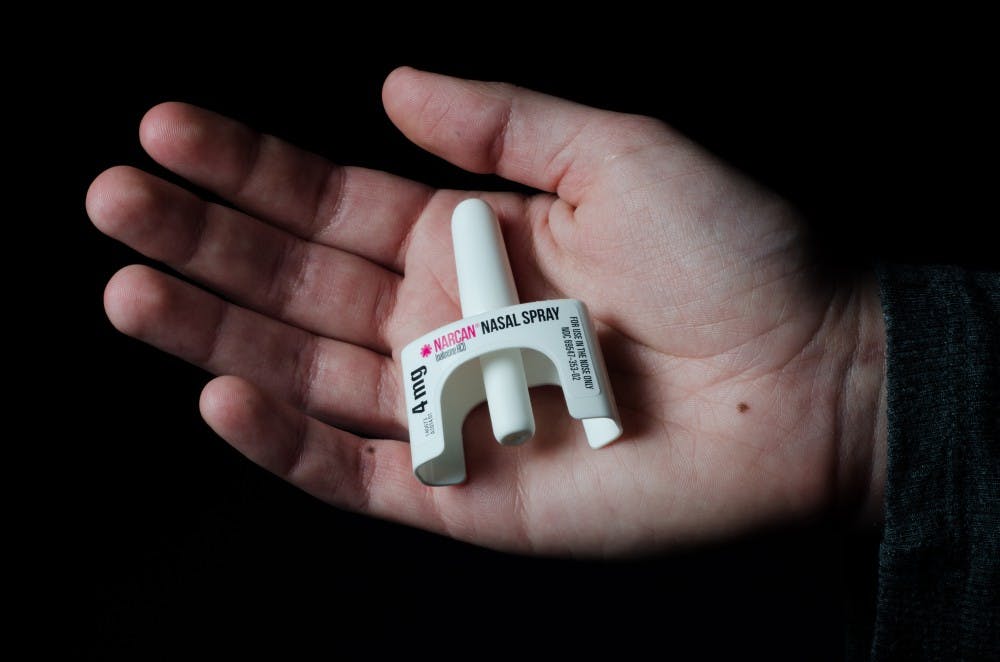In the moment of an overdose, emergency responders race to a scene to help get the victim a lifesaving drug. But with Aaron’s law in Indiana, victims are able to get the drug even faster.
Senate Bill 406, named Aaron’s law after Aaron Sims, a 20-year old from Indianapolis who died of a heroin overdose in 2013. The bill, which was signed in April 2015 by then Governor Mike Pence, allows for people to carry, administer and obtain naloxone without a prescription.
Naloxone, or Narcan, is a drug that reverses the effects of an opioid overdose. It can work in a matter of seconds, almost instantly saving a victim’s life.
"If administered in a timely manner, naloxone can reverse the life-threatening respiratory failure that is usually the cause of overdose deaths,” according to the Indiana State Department of Health. “Naloxone has been proven effective in reversing overdoses caused by heroin and prescription medications such as OxyContin, Percocet, methadone and Vicodin.”
OptIN or Overdose Prevention Therapy-Indiana, allows for people to see where to pick up naloxone from a registered entity.
In Delaware County, nine places, including the Ball State Health Center, are registered entities where you can get naloxone without a prescription.
All IU Health retail pharmacies, including the Pavilion Pharmacy at IU Health Ball Memorial Hospital, sell Narcan kits.
A Narcan kit, which contains two prefilled nasal dispensers, costs around $135 per kit. People can also purchase two syringes and the aspirator for around $75 per kit.
“There is also an auto-injector product called Evzio, (like EpiPen), but it is so incredibly expensive, we do not stock it right now,” said Max Barnhard, the administrative director of IU Health Retail Pharmacy Network. “It runs around $5,000.”
The health center and the hospital have not sold any Narcan kits since it started carrying it.
Jammie Bane, administrator for the Delaware County Health Department said the department offers Narcan training for those interested in carrying it.
“The training is pretty short and simple, focused on a video provided by the state,” Bane said. “Anyone who wishes to have Narcan must complete an application and the training.”
Bane said the reason Narcan holders go through the training is to ensure that the limited number of doses the Health Department distributes are going to those who need it, not just those who want to carry because it’s free.
“For example, someone who has family members who are drug users would be more likely to receive Narcan than someone who acknowledges no contact with drugs users and just wants it because it’s free,” Bane said.
On Monday, Indiana Governor Eric Holcomb introduced Next Level Recovery, a website for state resources on the opioid crisis.
“This website will change and develop over time along with our efforts, and I hope it will become a go-to resource for communities, families and individuals,” Gov. Holcomb said in a press release.
Contact Andrew Smith with comments at ajsmith15@bsu.edu or on Twitter at @AndrewSmithNews.





